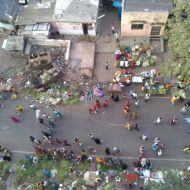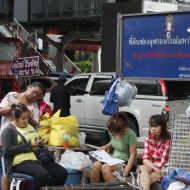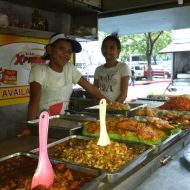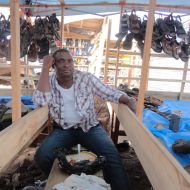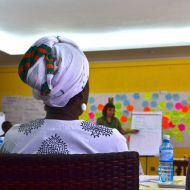A City Where Energy Costs and Quality of Life are Tightly Intertwined
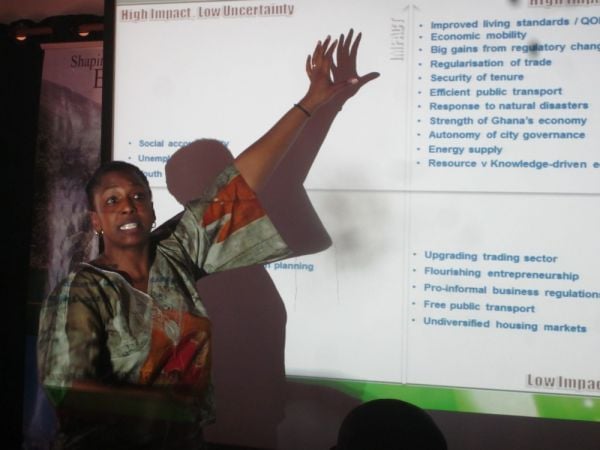
The Futures Scenarios workshop in Accra. Photo credit: Sharon Benzoni
As the Informal City Dialogues moves toward its “Embracing the Informal City” conference in September, each week we will present summaries of the scenarios created in the six participating cities. These scenarios were created in multi-day workshops planned and conducted by Forum for the Future in conjunction with the African Centre for Economic Transformation, and with support from The Rockefeller Foundation. The outputs were collaboratively envisioned by a wide range of actors, from informal settlers and street vendors to urban planners and government officials. The following is an excerpt from Forum for the Future’s report on the scenarios developed in each city, which will be published in September. Click here to read more about how the futures scenarios process works.
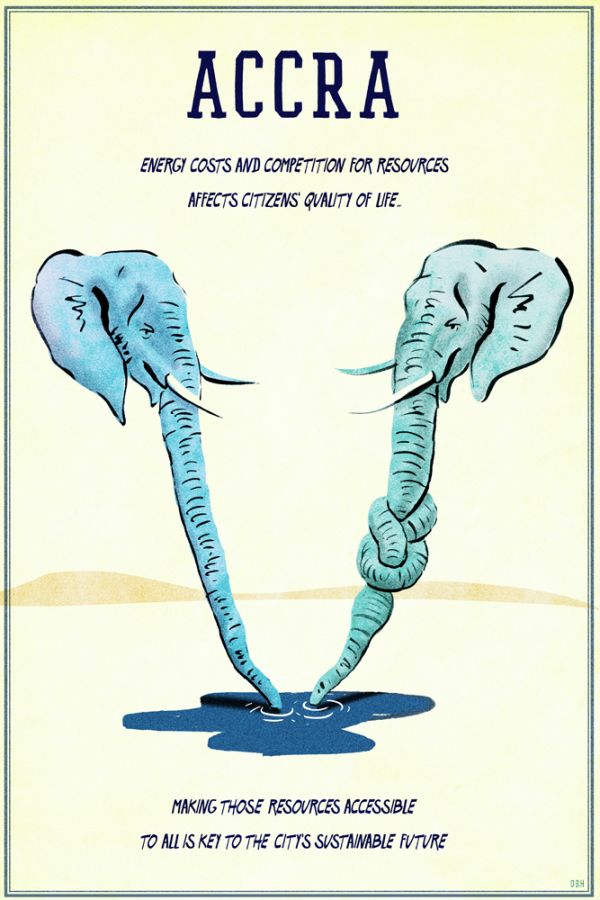
Illustration credit: Daniel Horowitz
ACCRA
Energy affordability and the number of residents who are able to enjoy a high quality of life – these are the two forces that will define Accra in 2040. How these forces might play out is illustrated in the four scenarios below, created by participants in the Informal City Dialogues workshops. Each imagines a different future Accra: One stricken by poverty and high living expenses, another with an emerging middle class and gradually declining energy costs, a third in which infrastructural improvements have empowered residents to create a better city for themselves, and finally, an Accra defined by rising equality and resilient urban systems.
Position
This is a story about a highly unequal and unstable society, where the majority of the poor are disenfranchised. Accra in 2040 is characterized by a sharp divide between the formal and informal sectors in the provision of education, environmental stewardship, and governance. Although Ghana seemed to be on the right path when university education was made free in the 2010s, an armed conflict wracked the region in the 2020s and disrupted the country’s forward progress. Things have improved since the conflict abated in the 2030s but development has been uneven. Some parts of the city went through massive redevelopment funded by international aid, whereas other areas were passed over. Given the high cost of energy, transportation and housing have become increasingly unaffordable. Water is the most expensive commodity and the effects of climate change are causing serious disruption in the city. The Chinese now dominate the informal economy.
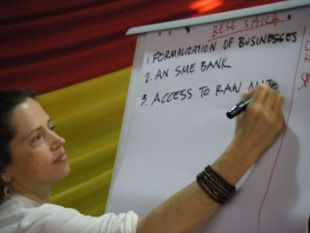
The Innovation Workshop in Accra. Photo credit: Sharon Benzoni
Potential
Accra in 2040 is making progress after suffering through difficult times. A “lost decade” of regional armed conflict killed many of the city’s residents and caused major disruptions to education and development. Following the war, international aid and the African diaspora were successfully mobilized to create jobs, trade, and good governance networks. Reconstruction and social cohesion began to take root around 2030, and Accra’s political leadership improved. A surge in natural resource extraction made energy affordable and Accra became a hub for global production and services. Although most people still live in poverty, a middle class has started to emerge. Gleaming high-rise buildings now rub shoulders with squalid shacks. The benefits of new infrastructure, like a new high-speed rail link and the West Africa power grid network, have trickled down to the poor to some extent. Accra’s government has begun to focus aggressively on urban regeneration through land reform programs, basic service provision, and economic infrastructure investments. Social innovations are starting to provide real benefit to those in the informal sector.
Persistence
In this scenario, Accra’s government has closed the poverty gap and ensured decent lives for many of its residents. It must now rely on the ingenuity of its citizens to address its energy challenges. Accra in 2040 has an efficient public transport system, healthcare and basic education are free and of decent quality, and the city has grown into a beautiful metropolis. Effective governance in the 2010s strengthened the economy and created innovation clusters around agro-processing, finance, and services. The increased tax base then funded massive public infrastructure investment in public health, affordable housing, efficient transport, and quality education. By 2025, Accra had emerged as an oasis of opportunity and was rapidly becoming a key regional economic hub. However, over the following decade the city struggled to provide clean water and energy, and slums began to re-emerge. In 2040, the economy has begun to pick up again as the energy situation improves and the state is still able to maintain minimum living standards for most people in the city based on its legacy investments.
Power
Accra in 2040 is prosperous and united. In the late 2010s, slum dwellers were relocated in special deals that restructured land ownership and enabled private development. The government supported informal workers with welfare and skills development programs, as well as a medical insurance and pension scheme. The city became a center of entrepreneurship and innovation, particularly related to agriculture. In the 2020s, resilient systems were built to manage social, economic, and environmental challenges. The city’s visionary leaders understood the power of informal communities and created opportunities for citizens across the socio-economic spectrum to contribute to development plans. While the government invested in infrastructure and services, it also enabled other stakeholders to do the same. Incentive programs encouraged the private sector to invest in sustainable industrial development and corporate social responsibility. Land administration was successfully reformed and housing, much of it environmentally sustainable, became accessible to all. Community-based strategies have been developed for including the increasingly large elderly population in city life and ensuring that they have adequate care. Ghanaians from the diaspora have begun to come back home—not just for retirement, but also so their children can attend the excellent universities, and to start businesses drawing upon their accumulated capital and new ideas.


